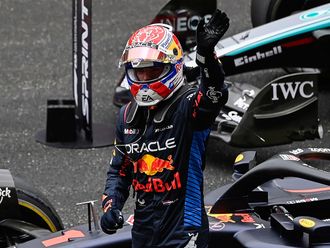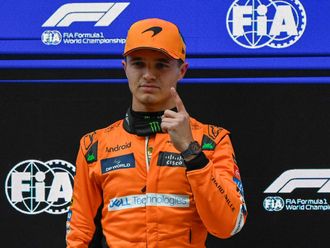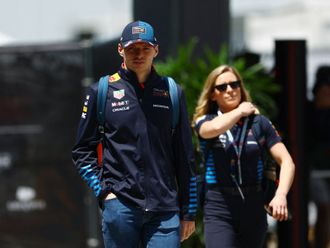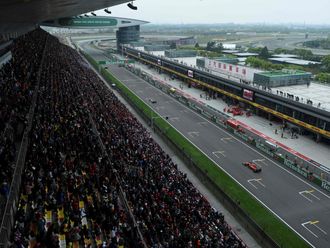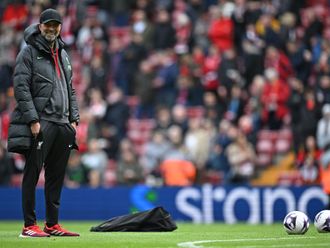The rider who wears No 13 because it did not bring him any bad fortunes as an international handball player will be tempting fate again when the UAE Desert Challenge gets under way in Dubai tomorrow afternoon.
Luxembourg's Chrescht Beneke could have been excused for having a change of heart after running out of luck in last year's event when he was plagued by mechanical problems, and especially after more setbacks followed him into the 2005 FIM Cross Country Rallies World Championship now reaching its climax in the UAE.
But despite being seeded fourth in the powerful bikes line-up for this year's event, Beneke has again asked for, and been granted, the starting number 13 which normally finds no place in international rallying.
Beneke, who wore the No 13 shirt when playing for Luxembourg's national handball team, said: "I never had any bad luck then, so I thought it might be good luck to wear the same number in rallies. Yes I had some bad luck here last year and I've had a few more disappointments this year, but 13 is still my lucky number so I'm sticking with it."
He is in a powerful line-up of riders headed by Marc Coma and also including the two men who could still, mathematically, deny the Spaniard the 2005 world title, Frenchmen David Casteu and Cyril Despres.
The Desert Challenge is sponsored by Abu Dhabi Tourism Authority, Nissan Middle East - with the Nissan Patrol the rally's official car - Dubai Waterfront, an 81 million square metre development by Nakheel, Dubai's Department of Tourism and Commerce Marketing, ADNOC, Emarat and Inmarsat, providers of satellite communications.
Beneke is an army soldier, but Luxembourg's national service pays him a salary and allows him to follow a professional career in sport on the condition that he passes sports exams twice a year. His riding career is also supported by a couple of sponsors and friends.
He believes the UAE Desert Challenge is the best and most considerate event in the championship for riders, and wishes the organisers of other events would follow the lead of Mohammad Ben Sulayem and his organisation by reducing the liaison distances from the end of stages to the bivouac to a minimum.


